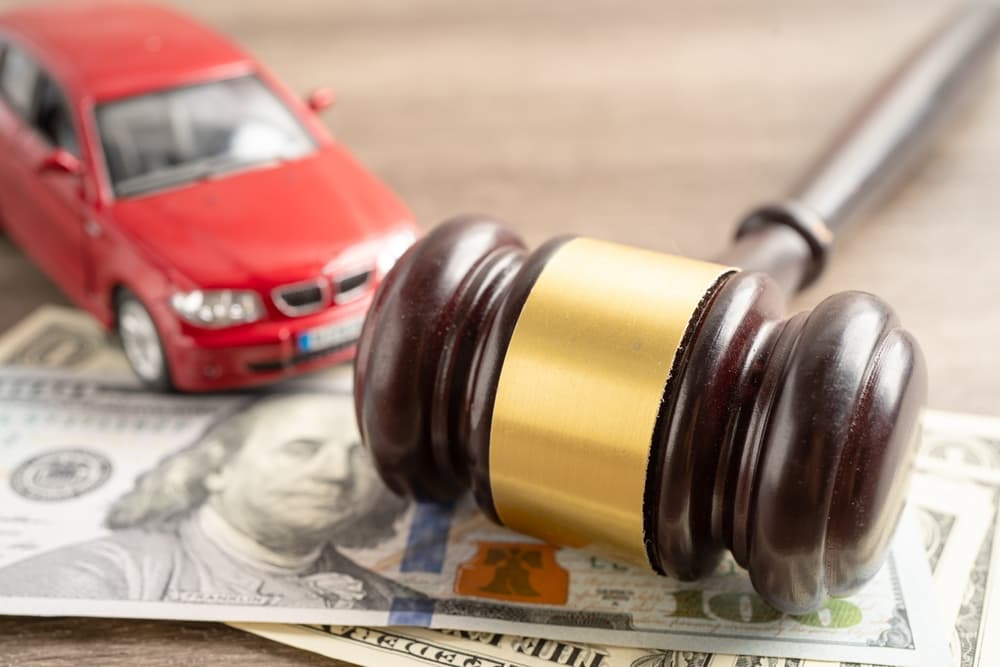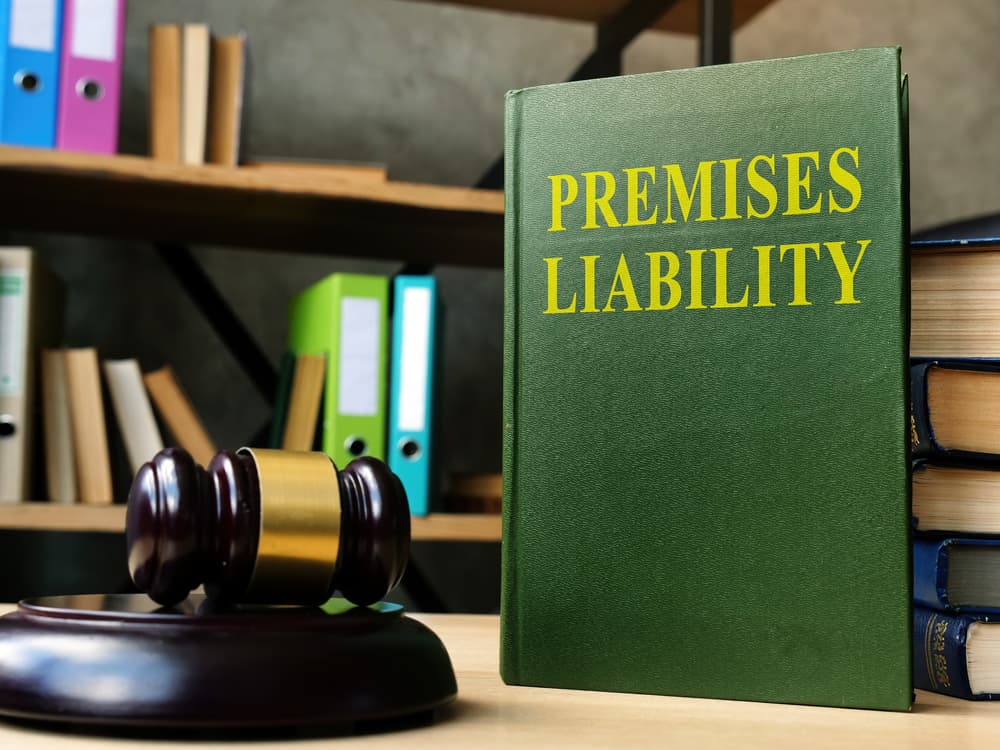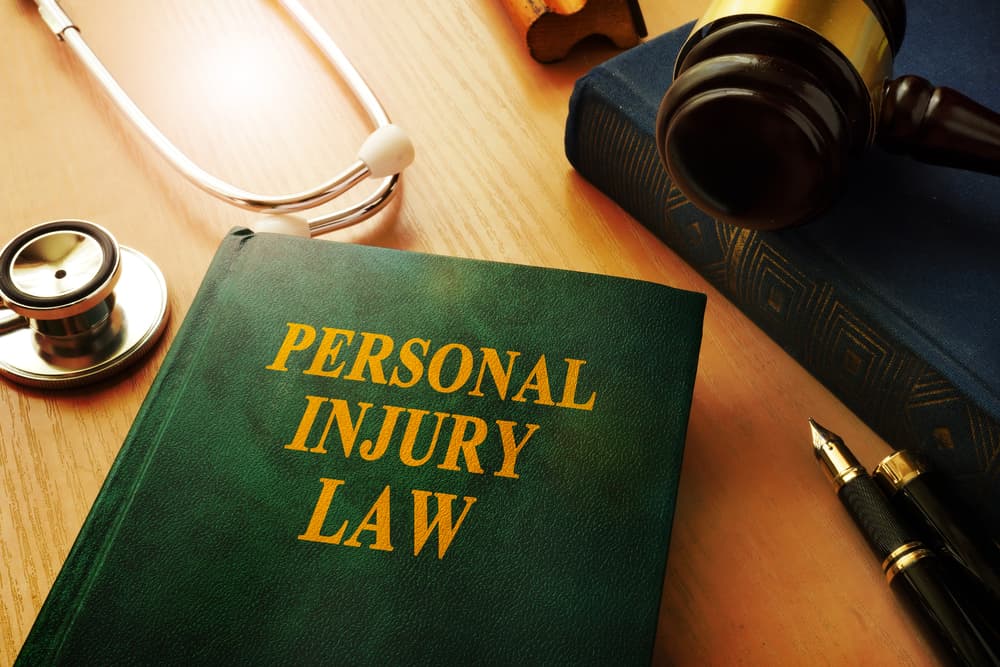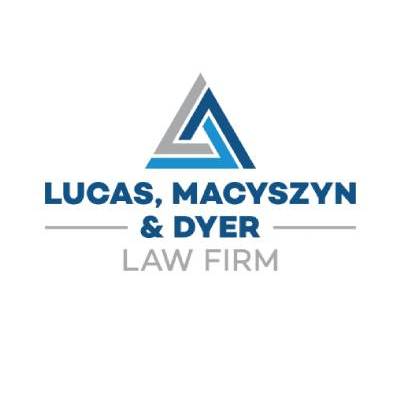
Traumatic brain injuries, sometimes called TBIs, often result from others’ negligent acts. An accident victim can suffer a TBI if they strike their head on the ground in an accident. A TBI may also result when an object penetrates the accident victim’s head or skull.
While some TBIs and their symptoms might clear up with time, other TBIs may cause an accident victim to suffer permanent complications. Occasionally, the accident victim might wind up in a coma or a permanent vegetative state.
You have legal options if you or someone you care about suffered a TBI due to another person or entity’s negligence. Your brain injury lawyer can investigate your accident’s circumstances and determine those options. Your lawyer can help you select the best option for your case, file a personal injury claim on your behalf, and pursue favorable settlement compensation for your TBI. If the at-fault party’s insurance company refuses to compensate you fully and fairly, your lawyer can take your claim to a jury trial or binding arbitration.
How Do TBIs Happen?
TBIs can happen under a variety of circumstances. The extent of a TBI, as well as its symptoms, typically depends on the force of the impact and the type of accident that led to it.
Some of the most common causes of TBIs include bicycle and motorcycle accidents, car accidents, pedestrian accidents, slips, falls, defective products, and sports injuries:
- Bicycle and motorcycle accidents – Compared to car and truck drivers, cyclists are at an extreme disadvantage. If they are in a crash, they do not have any outer protection to lessen the blow. Even when a cyclist is wearing a helmet, the helmet can crack—especially if it is flimsy or defective. In many instances, bicycle and motorcycle accidents occur when drivers are negligent or intoxicated. Sometimes, the force of an impact is so extreme that it knocks a cyclist off their bike, causing them to strike their head on the ground and suffer a serious TBI.
- Car accidents – When a driver or passenger becomes involved in an accident, the force of an impact might cause them to strike their head on the headrest, steering wheel, window, or door frame, leading to a severe concussion or other TBI. In some car accidents, the impact force is so extreme that it ejects the driver or passenger from the vehicle, causing them to strike their head on the ground and suffer a debilitating TBI.
- Pedestrian accidents – Pedestrian accidents also typically involve motor vehicles. These accidents happen in parking lots and garages, as well as on sidewalks and crosswalks. When a driver fails to watch the road, they may not see a pedestrian approaching in the vicinity, striking them and knocking them to the ground. If a pedestrian hits their head on the ground, they can suffer a TBI or other debilitating injury.
- Premises accidents – Just like motor vehicle operators have a duty to drive safely and carefully, premises owners must always keep their properties reasonably safe. In addition to warning visitors about known dangerous conditions on their properties, they must also inspect their premises regularly for unknown hazardous conditions. If they fail to warn about or repair a defective condition on their property within a reasonable period, a business patron might slip, fall, and suffer a serious head injury.
- Defective products – Some TBIs happen when products are defective, and manufacturers and designers fail to take the necessary precautions. Product manufacturers, designers, and distributors must use reasonable care when designing and constructing their products. They must test their products adequately before making them available to the public. If a defectively manufactured or designed product explodes or otherwise malfunctions when a consumer uses it correctly, the consumer might suffer a head injury. When that happens, the accident victim can bring a claim or file a lawsuit against all entities in the product distribution chain, including the manufacturer and distributor.
- Sports injuries – Some TBIs happen when students suffer a sports injury. Sports injuries are especially common when students participate in football, basketball, and other contact sports—especially if one player knocks another player to the ground or the player is not wearing a helmet. Teachers, coaches, and counselors are supposed to recognize concussion symptoms and take timely action. First, they must take the injured student out of the game or practice session immediately. If the coach or other official fails to recognize the signs of a concussion and ensure the student receives prompt medical attention, you can hold them responsible for the resulting damages. Moreover, a principal or school board that employs the coach may be partially to blame for the occurrence.
If you or someone you love suffered a TBI due to another person’s carelessness, speak with an experienced and compassionate personal injury lawyer in your area right away. Your lawyer can help you file a claim or lawsuit and pursue the monetary damages you deserve to recover for your TBI.
Types of TBI
TBIs can lead to temporary or permanent consequences. One result of TBI is a headache. Some headaches only last a few hours after the accident, while some accident victims suffer chronic headaches and pain that radiates down the back of their neck.
Another TBI is a concussion. A concussion happens when an accident victim’s brain moves around inside their skull due to a forceful impact. This movement may disrupt the brain’s internal wiring system, composed of neurons and axons, leading to short-term complications.
Victims of these TBIs may suffer nausea and dizziness. They may also experience short-term memory loss or an inability to concentrate for some time.
Some TBIs are extremely serious. A forceful blow to the head in a serious accident may cause an accident victim to experience long-term symptoms, including permanent memory losses, long-term head pain, and a constant inability to focus. Long-term TBI sufferers may also be in a permanent coma or vegetative state.
If you or a person you care about suffered a short or long-term TBI due to someone else’s negligence in an accident, you must receive medical treatment immediately. As soon as possible after your accident, you should follow up at an urgent care center or hospital emergency room for treatment. The medical provider on duty can physically examine you and order the necessary imaging studies, including brain scans and MRIs, to determine the full extent of your head injury.
TBIs are unique in that the symptoms do not always manifest right away. Symptoms may not become apparent until days or weeks after the accident. Even a so-called mild TBI can become much more serious the longer it goes untreated. Therefore, your best bet is to get checked out immediately after your accident.
In addition to seeking same-day medical treatment, you must receive ongoing treatment for your TBI. An emergency room doctor can make recommendations for follow-up treatment, or they may recommend that you follow up with a specialist, such as a neurologist.
When you treat your injuries, attend all medical appointments and avoid long treatment gaps. Insurance companies are often skeptical of TBIs because they are usually invisible.
Moreover, if an accident victim delays medical treatment or fails to treat continuously for their injury, insurance company adjusters typically assume that the injury was not all that serious—or that the accident victim did not make their medical care a top priority.
While you focus your attention on recovering fully from your TBI, your lawyer can begin advocating for you. First, your lawyer can draft a settlement demand letter to send to the insurance company after you complete your treatment.
Your attorney can also gather all of your medical records and bills, along with your wage loss statements, photographs of property damage, and a victim impact statement, to forward to the insurance company. If the insurance company accepts fault for your accident, your lawyer can begin settlement negotiations and start to work on recovering the compensation you deserve.
Need a Lawyer?
Reach out to the Lucas, Macyszyn, and Dyer Law Firm team to begin your consultation. We pride ourselves on providing exceptional case results and giving you the peace of mind you deserve.
Proving a Negligence Claim
TBI victims may recover monetary compensation for their injuries if they can satisfy the legal elements of their brain injury claim. Specifically, they must establish that another person acted unreasonably under the circumstances, resulting in the accident or occurrence. The accident victim must also demonstrate that their TBI directly resulted from their accident.
In many TBI cases, insurance companies will claim that the TBI resulted from a pre-existing injury or medical condition. When that happens, the accident victim may need to retain a medical expert who can causally connect the TBI to the subject occurrence.
Pursuing the Monetary Compensation You Deserve
Victims of TBIs may recover monetary compensation. The damages a TBI victim can recover in an insurance claim or lawsuit will depend on the type of accident, the extent of the TBI, and whether they suffered a permanent injury. Permanent TBIs will not improve over time and will cause the accident victim ongoing pain and symptoms.
When it comes to damages, accident victims may first recover the cost of their medical expenses for TBI treatment. Accident victims can recover these costs even if their health insurance pays for some or all of their medical expenses. In addition, if they had to miss time from work, they can claim lost income or earning capacity.
In addition to these out-of-pocket costs, TBI victims can recover non-economic damages for their injuries. Non-economic damages compensate accident victims for the inconvenience, emotional distress, pain, and suffering they endured due to their TBI. If they suffered a TBI that left them with permanent mental deficiencies, they can recover compensation for lost quality of life.
In addition, if their TBI requires long-term or around-the-clock care, such as at a nursing home or assisted living facility, they can recover those long-term care costs. They can also recover monetary compensation for their permanent disability, loss of the ability to use a body part, and loss of spousal companionship and consortium.
An experienced personal injury lawyer in your area can review the circumstances of your accident and the extent of your injuries with you. Your lawyer can then determine which of these damages you might be eligible to pursue in your brain injury case. Finally, your lawyer can file the claim or lawsuit necessary to recover monetary compensation for your TBI.
Call an Experienced Brain Injury Lawyer Today
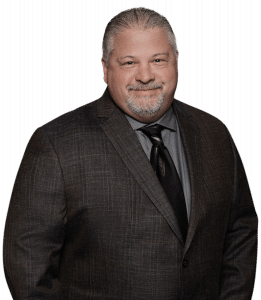
If you or a person you care about suffered a TBI in an accident that resulted from negligence, talk with a knowledgeable personal injury lawyer in your area right away. Always make getting legal help your second step after getting necessary medical care.
Your lawyer can assist you with every step of the claims-filing process and can negotiate with the insurance company adjuster on your behalf. If the insurance company refuses to compensate you reasonably for your TBI, your lawyer can file a lawsuit, litigate your case in court, and bring it to a prompt and efficient conclusion.
If necessary, your lawyer can take your TBI case to a jury trial or explore alternative dispute resolution possibilities, like mediation or binding arbitration, to maximize the compensation you recover in your case.
When you have a brain injury and lasting effects, the last thing you need is to navigate the insurance claim or legal process. Contact an experienced law firm to handle your claim, allowing you to focus on your health while knowing that someone will protect your rights.

